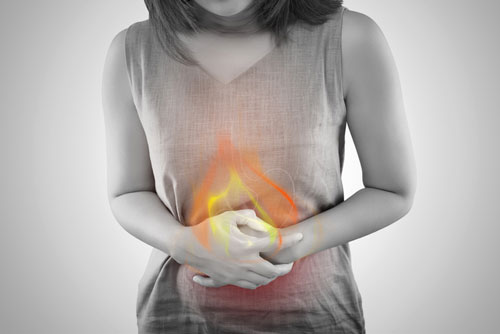Instant relief.
If you suffer from heartburn, that’s how you’ll feel the first time you take Prilosec, Nexium, and Prevacid. These big-selling drugs—called proton pump inhibitors (PPIs)—stop your stomach from producing acid.
Without acid, the burning, often-excruciating pain of heartburn goes away.
Problem solved, right?
Actually, your problems are just beginning.
Studies have made it clear that the PPIs that many people pop without thinking have serious side effects.
We’ve told you how they are associated with weak bones, pneumonia, vitamin and mineral deficiencies, reduced liver function, and Alzheimer’s.[i] [ii]
And long-term use of PPIs has been shown to cause fatal heart disease, kidney disease, and stomach cancer.[iii]
Now, new research reveals yet another way PPIs damage your health.
The study was published in the journal JAMA Network Open. Scientists analyzed medical records from 233,000 people taking PPIs. They compared that data with 627,000 people who didn’t take PPIs.
They found that people who take PPIs are 80% more likely to get stomach flu.
Dr. Mina Tadrous wrote the editorial that accompanies the study. He said that when you reduce stomach acids, you change the microbiome—the beneficial bacteria in the gut. And that “makes you more susceptible to infections.”[iv]
“Very few people need to be on PPIs long term,” said Dr. Tadrous.
5 Natural Ways to Stop Heartburn
These natural alternatives relieve heartburn safely without side effects:
1. Coconut Oil. A tablespoon of coconut oil each day can heal the damage caused by acid reflux. And it kills bacteria in your gut that cause inflammation.[v]
2. Ginger. Ginger is up to eight times more effective at killing bacteria that can cause acid reflux than drugs like Prevacid.[vi]
Ginger doesn’t stop your body from making stomach acid. It simply helps keep it under control. You can add whole ginger to food or take it as a supplement.
3. Calcium. Calcium tightens the lower esophageal sphincter. This helps keep stomach acid where it belongs, in your stomach. But it’s important that you get calcium from food, not supplements.[vii]
Sardines, salmon, kale, cheese, and plain yogurt are great sources.
4. Astaxanthin. One study showed that subjects who received 40 mg of astaxanthin a day had significant improvements in heartburn after four weeks.[viii]
You can get astaxanthin from cold-water fish like wild-caught salmon. It is also widely available in supplement form.
5. Ellagic Acid. This polyphenol protects your stomach and esophagus from H. pylori. That’s a type of bacteria that can cause ulcers and excess stomach acid. Ellagic acid also fights inflammation and protects you against ulcers.
You can get ellagic acid from supplements or in walnuts and pecans. Pomegranates, raspberries, and strawberries are also high in ellagic acid.[ix]
Don’t fall into the PPI drug trap. These medications often cause more harm than good. You’re far better off using these effective natural treatments to stop heartburn.
Editor’s Note: Independent Healing is your number one source for evidence-based natural health solutions. Each month we bring you non-biased, science-backed medical advice from the world’s top researchers. To subscribe, go HERE.
Related Articles
The Deadly Dangers of Heartburn Drugs
Heartburn Drugs Nearly Double Risk of PneumoniaStudy: Heartburn Pills Raise Risk of
Serious Infections
Like this Article? Forward this article here or Share on Facebook.
[i]https://www.ncbi.nlm.nih.gov/pmc/articles/PMC2974811/
[ii]https://www.ncbi.nlm.nih.gov/pubmed/25083257
[iii]https://www.ncbi.nlm.nih.gov/pubmed/31147311
[iv]https://medicalxpress.com/news/2019-11-popular-heartburn-drugs-odds-stomach.html
[v]http://www.westonaprice.org/digestive-disorders/acid-reflux-a-red-flag
[vi]http://www.ncbi.nlm.nih.gov/pubmed/17295419
[vii]http://www.huffingtonpost.com/leo-galland-md/acid-reflux-the-truth-beh_b_541649.html
[viii]http://www.ncbi.nlm.nih.gov/pubmed/18467083
[ix]http://www.lef.org/magazine/mag2013/nov2013_Block-Acid-Reflux-to-Prevent-Esophageal-Problems_02.htm

